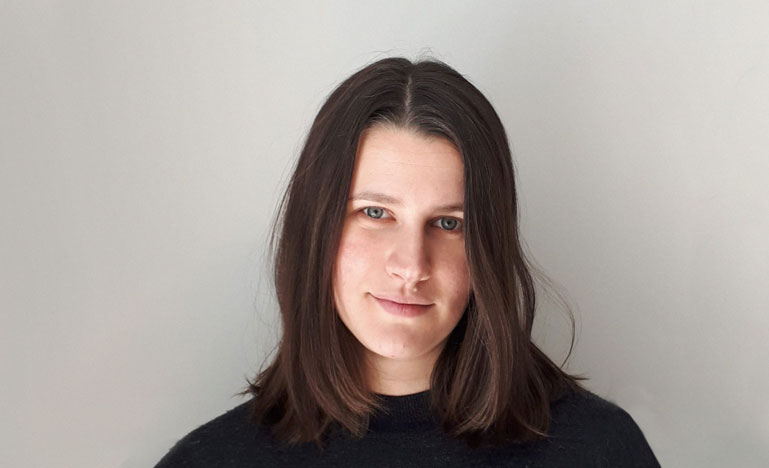The values of equality
According to Léa Brière-Godbout, recently awarded the CBA’s Viscount Bennett Fellowship, there are two opposing views of discrimination.

Léa Brière‑Godbout is this year’s recipient of the Viscount Bennett Fellowship -- recognition from the Canadian Bar Association that reflects Brière-Godbout’s impressive track record.
“Valour doesn’t await the passing of years,” as Corneille famously wrote. It’s a quote that certainly applies to Brière‑Godbout, who at 30 is a member of the Barreau du Québec, holds a law degree from the Université du Québec à Montréal (UQAM) and a master’s in law from Yale University in the United States. She also clerked for Justice François Doyon at the Quebec Court of Appeal and for Chief Justice Richard Wagner at the Supreme Court of Canada. She is now pursuing a Ph.D. at the University of Toronto.
Brière-Godbout has been awarded several prizes for academic excellence throughout her educational career, both in CÉGEP and university. She also received the top prizes at the 2012 Gale Cup Moot, a bilingual mooting competition. She participated in the Parlement jeunesse du Québec [Quebec youth parliament] six times and helped organize it for three years. Despite her busy schedule, she always found time—about 15 hours a week—to volunteer for a variety of organizations. It all adds up to an impressive body of achievements for Brière-Godbout, who as a lawyer, hopes to devote herself to teaching once her doctorate is complete.
Two visions of discrimination
Social law is the common thread throughout Brière‑Godbout’s academic career. After graduating with a college diploma in social work in 2010, she decided to pursue her studies at UQAM. “UQAM’s Faculty of Law is focused on social law,” Brière-Godbout says, “and that’s why I wanted to study there. I took courses on women’s rights, collective labour relations, etc. After that, my studies at Yale helped me take an interdisciplinary approach. I’ve focused on public interest issues and inequalities.”
Equality and discrimination are the focus of her thesis project for her Ph.D. “Claims of discrimination usually come from members of marginalized groups demanding equal treatment,” she explains. “For example, women advocating for the right to vote or for equal pay. But what’s new today is that we see members of groups that are usually in a position of power, saying that they’ve been victims of discrimination.” One example might be men who feel that they’ve been discriminated against because the organizers of a feminist demonstration asked them to march at the end of the procession.
As Brière‑Godbout explains, “People in both camps feel that they’ve suffered the same injustice, and they take rather firm stances on it. I wanted to understand why groups that say they have the same values of equality don’t apply those values in the same way, which is the basis of a fundamental disagreement.”
In her view, there are two opposite understandings of discrimination. In a contextualized approach, discrimination is seen as something faced by individuals who belong to groups that are excluded, marginalized or disadvantaged, such as women and racialized persons. By this definition, practices that exclude members of non‑disadvantaged groups cannot be considered discriminatory.
In a decontextualized approach, however, discrimination is considered to mean treating a person differently based on an unchangeable characteristic, and thereby refusing to treat them as an individual.
In the latter case, advantaged individuals, no less than disadvantaged individuals, may be victims of discrimination. Those who hold this position present advantaged individuals as victims of discrimination. They argue that, for example, an event reserved only for racialized persons or for members of the LGBTQ+ community would be a case of “reverse discrimination.” As Brière‑Godbout explains, “The contextualized approach is popular, but the approach where context doesn’t affect discrimination has been gaining ground continually over the last 40 years.
That’s the reason we see more and more ‘reverse discrimination’ cases in Canadian courts.” She added that she became interested in this issue during her studies in the United States, where judges have begun to take positions on such claims by members of majority groups. Brière‑Godbout plans to continue her work by focusing on current legal thinking and case law on this subject in Canada.
The Viscount Bennett Fellowship, created in 1943, is made possible by a donation from the Right Honourable Viscount Bennett, a CBA Past President (1929–1930) and former Prime Minister of Canada (1930–1935). Each year, it is given to a Canadian student of exceptional merit. The purpose of the $25,000 prize is to encourage a high standard of legal education, training and ethics.


